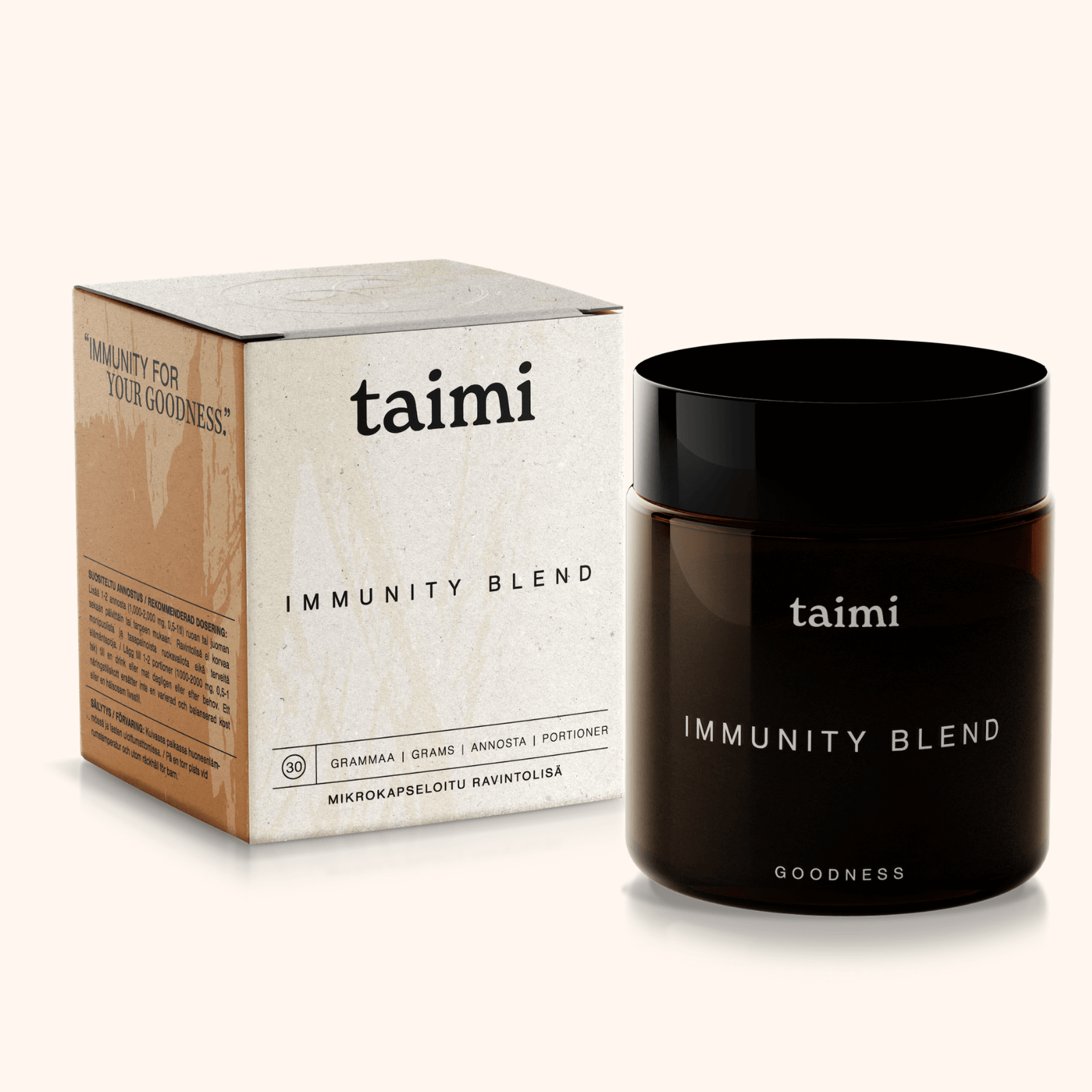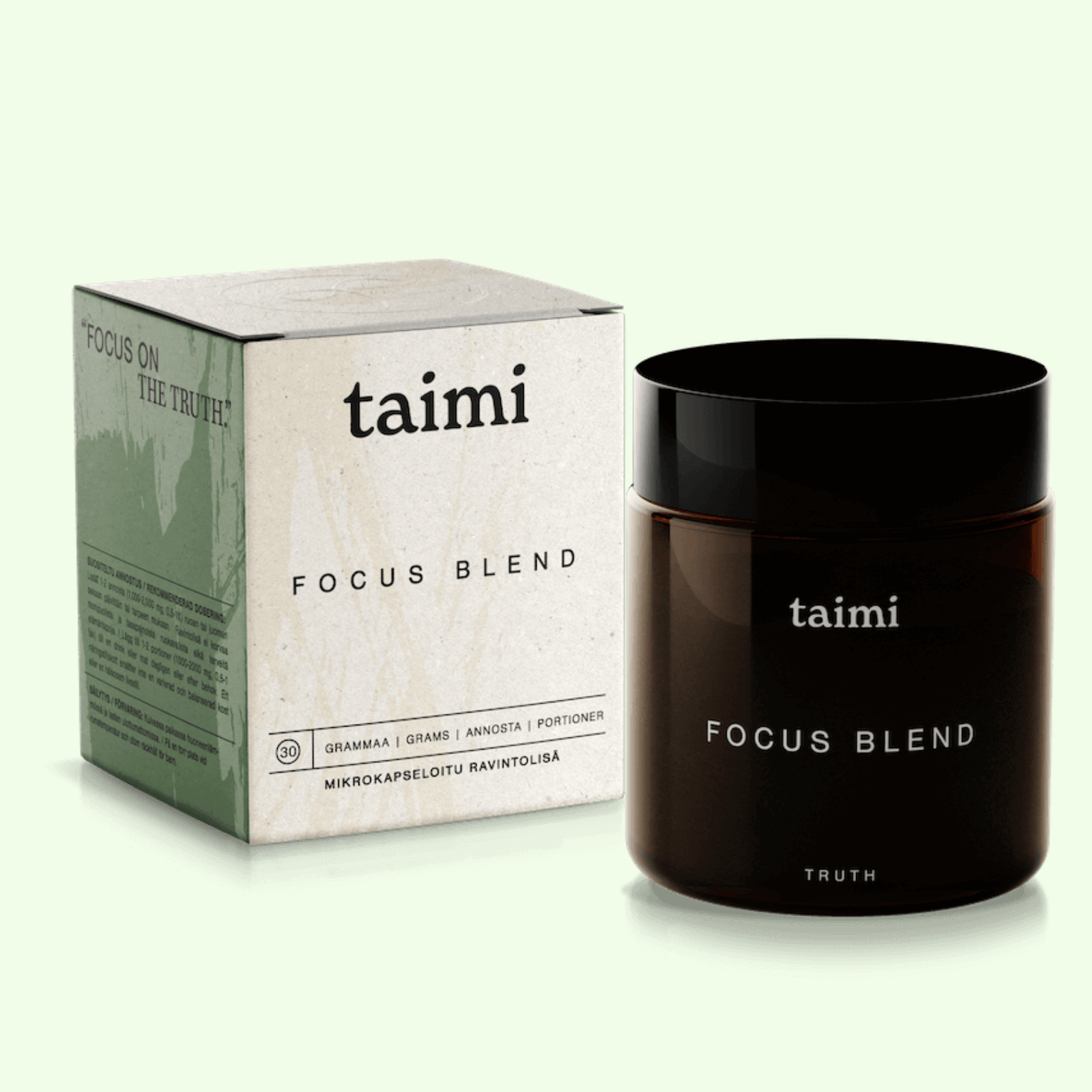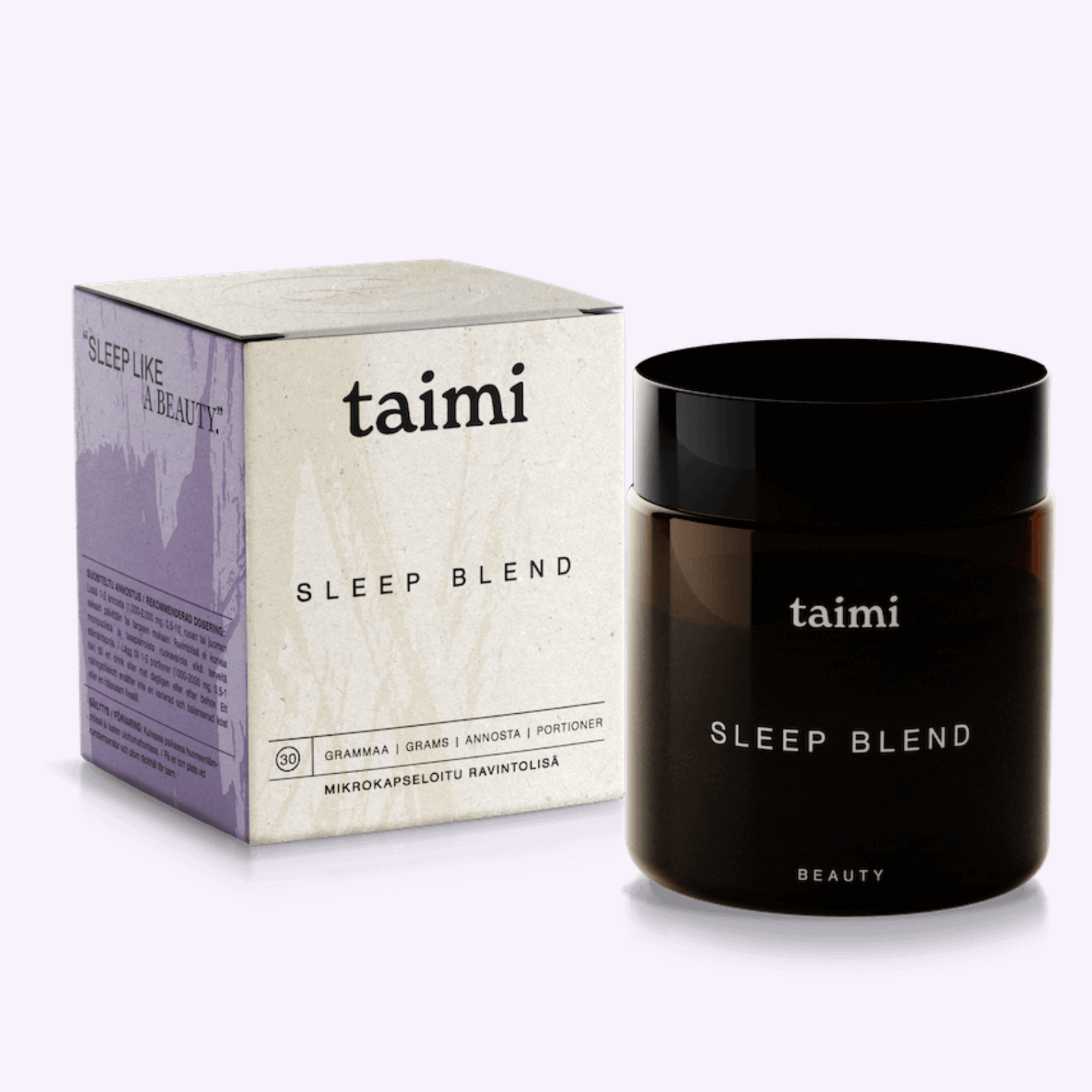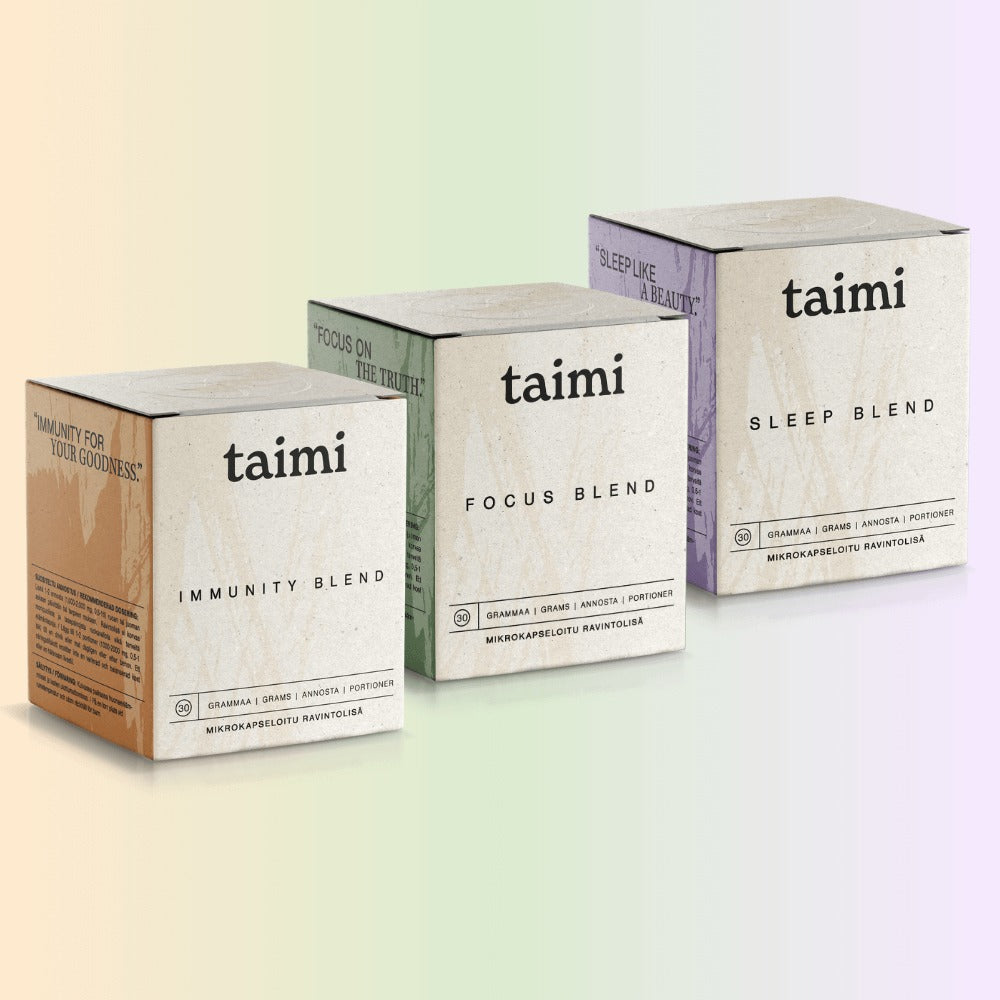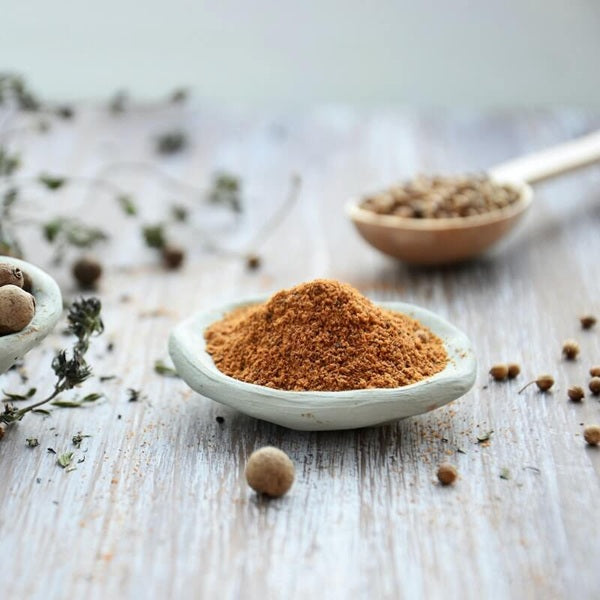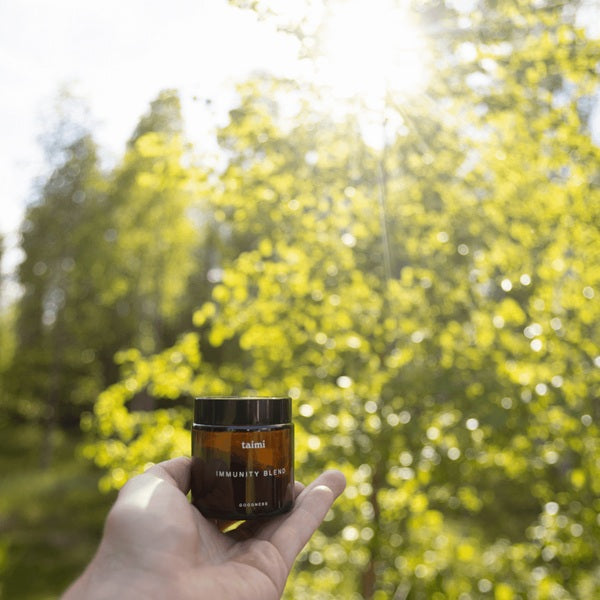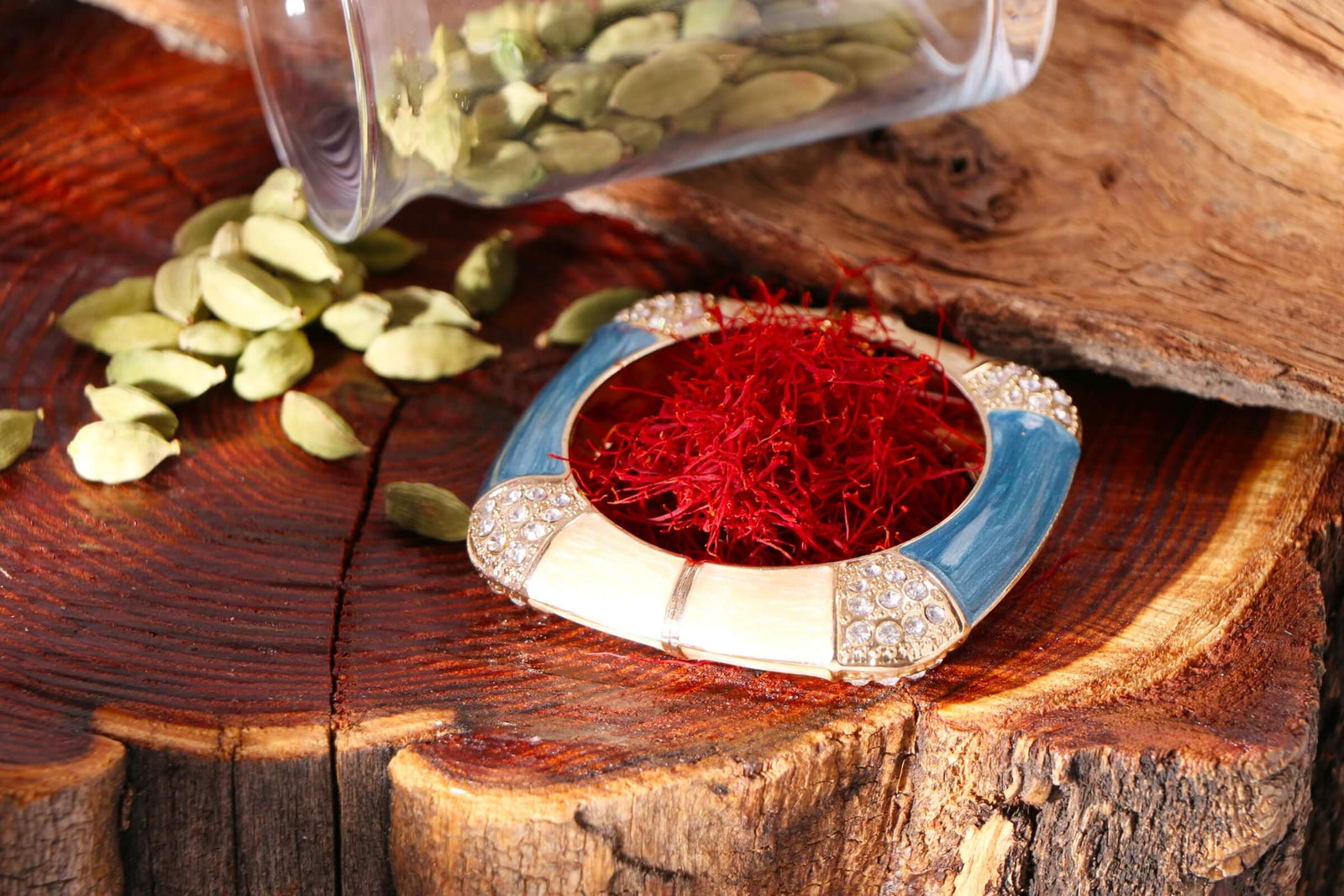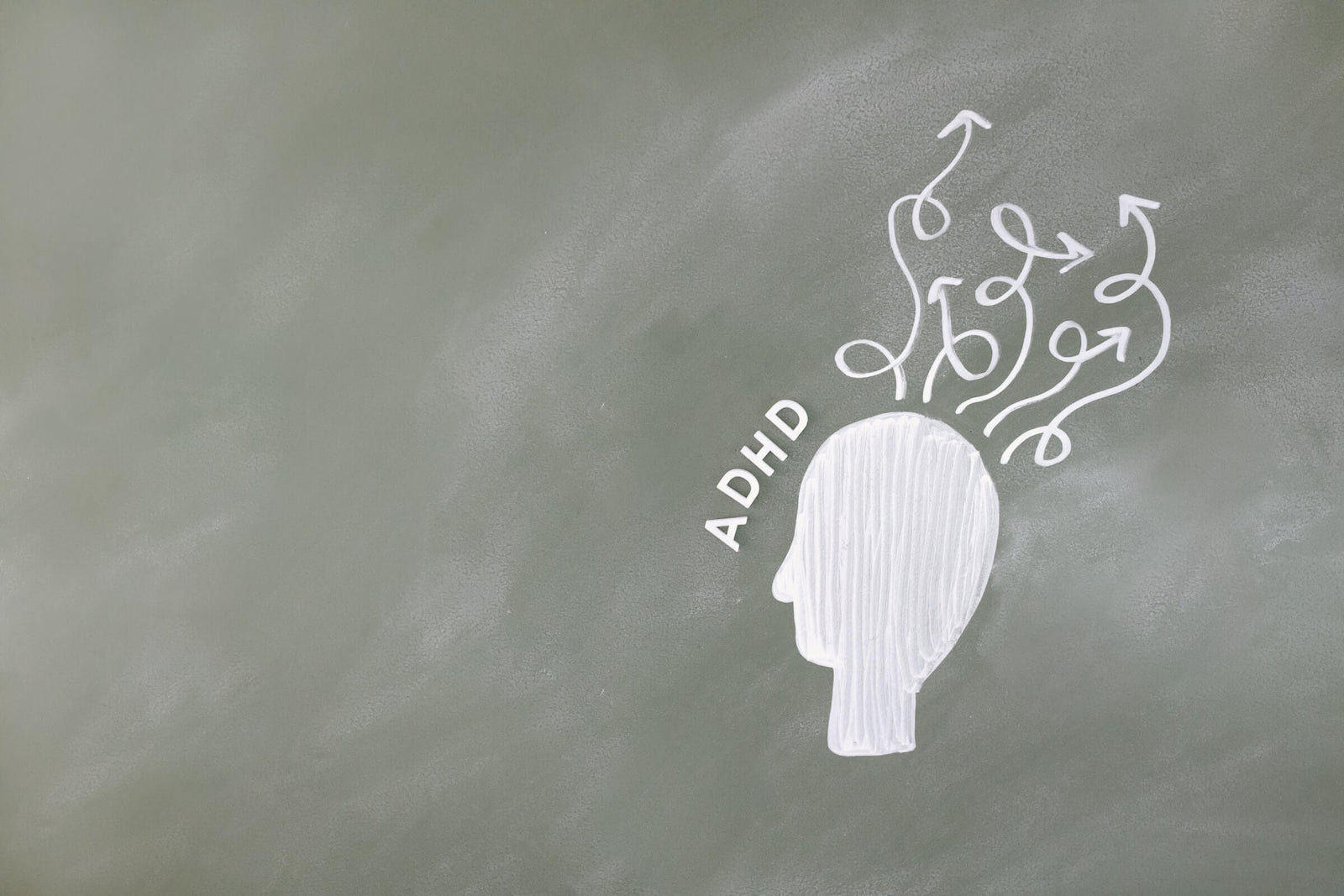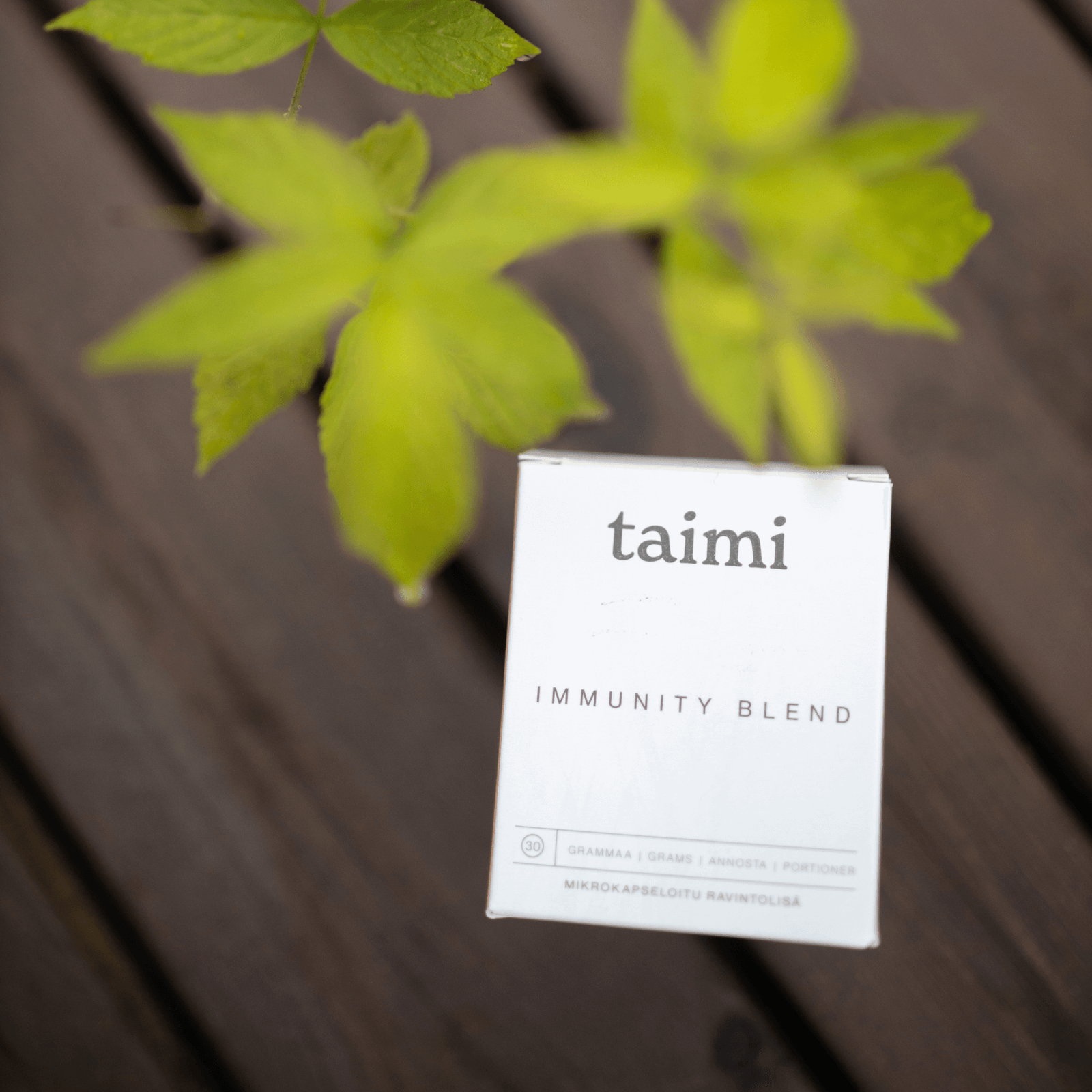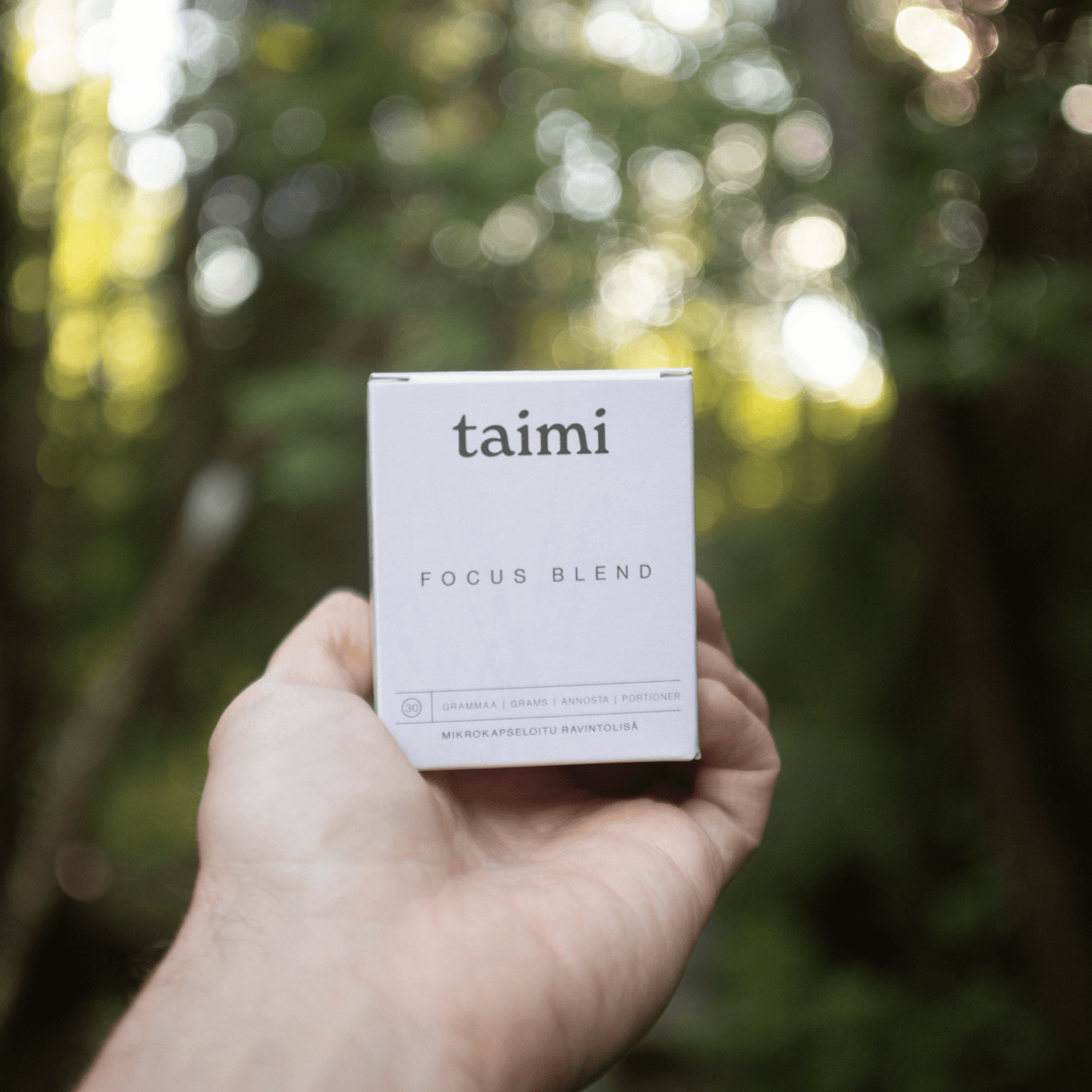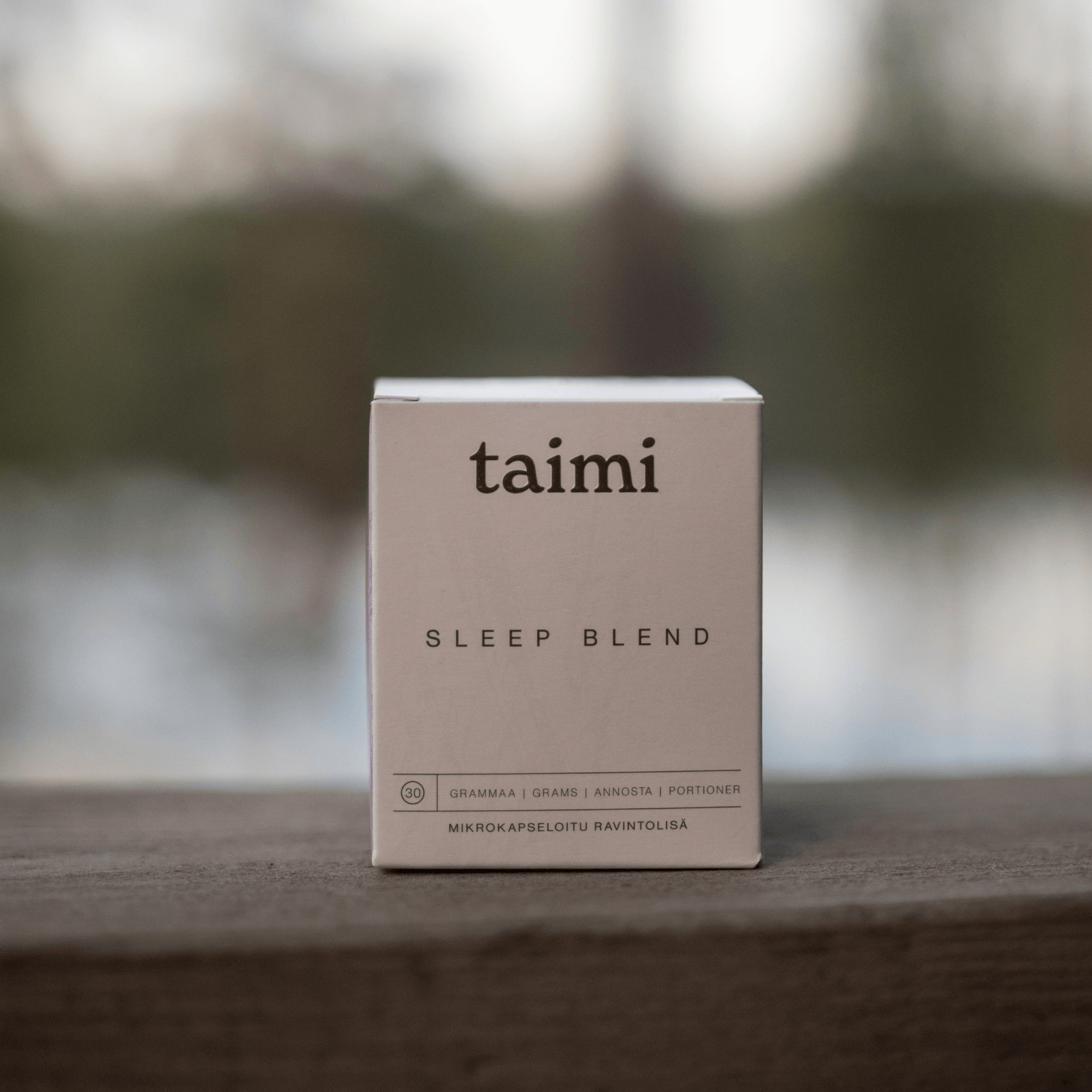Table of contents
Vitamin B2, i.e. riboflavin, is a key nutrient that acts as an antioxidant in the body, among other things. Because it is a water-soluble vitamin, like all B vitamins, vitamin B2 must be obtained from the diet daily to avoid vitamin B2 deficiency.
In general, B vitamins are used to help with digestion and the recovery of energy from the food you eat. They convert the nutrients of carbohydrates, fats and proteins into usable energy in the form of 'ATP'. This is why vitamin B2 is needed for the functioning of every cell in your body . Therefore, a lack of vitamin B2 in your diet can cause several serious side effects.
What is Riboflavin or vitamin B2?
What is vitamin B2 and how does it affect your body? The tasks of vitamin B2 include maintaining healthy blood cells, increasing energy levels, promoting healthy metabolism, preventing damage caused by free radicals, promoting growth, protecting skin and eye health and much more.
Vitamin B2 is used together with other B vitamins to form a "vitamin B complex". In fact, vitamin B2 must be present in the body in large enough amounts for other B vitamins, such as vitamin B6 and folate , to function properly.
All B vitamins are responsible for important functions such as promoting nerve, heart, blood, skin and eye health, reducing inflammation and supporting hormone function. One of the best-known functions of B vitamins is to maintain a healthy metabolism and digestive system.
Vitamin B2, i.e. riboflavin, has been shown to act as an antioxidant. It helps prevent lipid peroxidation and oxidative damage, both of which contribute to chronic health problems such as cardiovascular and neurological diseases. Vitamin B2 also plays an important role in enzymatic reactions. Riboflavin has two coenzyme forms: flavin mononucleotide and flavin adenine dinucleotide.
The benefits of vitamin B2
1. Helps prevent headaches and migraines.
Riboflavin, or vitamin B2, has proven to be an effective method in the treatment of migraines and headaches. In the United States, doctors can prescribe high doses of riboflavin, up to 400 milligrams per day, for at least three months as a headache preventative or as a medication for severe migraines.
Supplementing with riboflavin, especially if you are deficient in vitamin B2, has been shown to be a natural headache reliever and reduce the frequency of migraines. It can also help reduce symptoms and pain during a migraine and shorten the duration of a migraine.
2. Supports eye health
Studies show that riboflavin deficiency increases the risk of certain eye problems, including glaucoma. Glaucoma is a key factor in vision loss and blindness. Riboflavin, or vitamin B2, can help prevent eye diseases such as cataracts, cone bulging and glaucoma. To treat eye diseases, riboflavin drops are applied to the surface of the cornea of a patient suffering from glaucoma. When used in conjunction with light therapy, riboflavin can be absorbed through the cornea, while increasing its strength.

Vitamin B2 is a natural aid for migraine treatment.
3. Helps prevent and treat anemia
Anemia is caused by several factors; from the reduced production of red blood cells, from the inability to transport oxygen to the blood and from blood loss. Is riboflavin a good support if you suffer from anemia? Yes, it plays an important role in red blood cell production and oxygen transport, and helps prevent and treat anemia.
Vitamin B2 is needed both for the synthesis of steroid hormones and for the production of red blood cells. It also helps transport oxygen to the cells and mobilize iron. When people are deficient in riboflavin, they have a higher risk of developing anemia and sickle cell disease. Low levels of vitamin B2 correlate with both of these conditions.
According to research, vitamin B2 also effectively helps to lower high homocysteine levels in the blood. Homocysteine levels rise when the body is unable to convert the chemical homocysteine in the blood into amino acids used by the body. Supplementing with vitamin B2 has been shown to help correct this condition and balance homocysteine levels.
4. Needed to maintain energy levels
Riboflavin is considered a vital component of mitochondrial energy production. The body uses vitamin B2 to convert food into energy and to maintain the brain, nerves, digestive tract and hormone function. Therefore, riboflavin is very important for growth and body repair . When there is not enough riboflavin and a riboflavin deficiency occurs, then the carbohydrate, fat and protein molecules in the food cannot be broken down properly and act as "fuel" that keeps the body running. This "fuel" in the body is called ATP (i.e. adenosine triphosphate) and the main function of mitochondria is to produce ATP.
Vitamin B2 is needed to break down proteins into amino acids, fats into lipids and carbohydrates into glucose. This process helps convert nutrients from food into energy and building blocks for the body, which in turn helps maintain healthy metabolism and body functions.
Riboflavin is also needed to regulate thyroid function and adrenal function. A lack of riboflavin can increase the likelihood of thyroid diseases. It is also useful for calming the nervous system, combating chronic stress, and regulating hormones that regulate appetite, energy levels, mood, temperature, and many other things.
5. Has antioxidant properties and protects against cancer
Studies have found that vitamin B2 intake is inversely related to some of the most common types of cancer, such as colon and breast cancer . Vitamin B2 supports the immune system by acting as an antioxidant that curbs the occurrence of harmful free radicals in the body. It is needed for the production of an antioxidant called glutathione, which acts as an eliminator of free radicals and cleanses the liver.
Free radicals age the body. When their amount in the body increases uncontrollably, it can lead to the development of various diseases. Vitamin B2 plays a role in fighting disease by maintaining a healthy lining of the digestive tract, on which a large part of the immune system is based. Thanks to a healthy digestive system, the body can absorb and use as many nutrients as possible from food. A lack of riboflavin can therefore mean that fewer nutrients are absorbed into your body and end up as energy and building blocks for your body.
In preliminary studies, B vitamins have been found to help prevent certain types of cancer , such as colon and rectal cancer, esophageal cancer, cervical cancer, breast cancer and prostate cancer. Although more research is needed to determine their exact role in cancer prevention, researchers currently believe that B vitamins work to minimize the effects of oxidative stress caused by cancer-causing carcinogens and free radicals.
6. Protects hair and skin
Vitamin B2 plays an important role in maintaining collagen levels, which is what healthy skin and hair are made of. Collagen is needed to maintain the skin's youthful structure and prevent lines and wrinkles. A lack of riboflavin can make us look older faster. According to some studies, riboflavin can reduce the time it takes for wounds to heal, reduce skin infections and chapped lips, and help slow the signs of aging.
7. Helps prevent neurological diseases
Research results suggest that vitamin B2 may have neuroprotective effects and may protect against some neurological disorders, such as Parkinson's disease, migraines, and multiple sclerosis. Researchers believe that a lack of vitamin B2 plays a role in impaired neurological functions, and that a sufficient amount of this vitamin supports a healthy nervous system. Vitamin B2 acts as an antioxidant and helps myelin formation, mitochondrial function and iron metabolism.
Vitamin B2 as part of B vitamins
Your body needs eight different B vitamins, each of which has a key role in your health. Vitamin B was once considered a single nutrient until researchers discovered that "vitamin B" actually consisted of several different B vitamins. Because of this, they were given numbers to distinguish the different vitamins from each other.

Meat and offal are foods rich in vitamin B2, but vegetarians can find natural sources of riboflavin, e.g. mushrooms, almond, seaweed, beans and lentils.
When B vitamins are used together, they work more effectively in the body. Most B vitamin preparations contain at least vitamin B1 (thiamine) , vitamin B2 (riboflavin), vitamin B3 (niacin/niacinamide) , vitamin B5 (pantothenic acid) , vitamin B6 , vitamin B9 (folate) and vitamin B12 , which together support energy production and the body's normal functioning through efficient food absorption and metabolism. Vitamin B2 in your diet affects how some other B vitamins, such as B12 and folate, do their jobs, so it's handy that many foods contain more than one B vitamin.
Vitamin B2 in traditional medicine
In 1872, English biochemist Alexander Wynter Blyth was the first to discover vitamin B2 when he noticed a greenish-yellow dye in milk. However, riboflavin was only identified in the early 1930s by Paul Gyorgy, the same biochemist who is also credited with the discovery of other B-group vitamins, such as biotin and vitamin B6.
Long before vitamin B2, or riboflavin, was isolated by scientists, practitioners of traditional medicine such as Ayurveda recommended foods rich in B vitamins to improve energy levels, nervous system function, and eye, skin, hair, and liver health. Foods containing vitamin B2 include liver and other internal organs, high-quality dairy products, eggs, several nuts, mushrooms and green vegetables. These have traditionally been considered important foods for slowing the aging process and promoting youthful growth, and are still recommended for people with migraines, anemia, slow metabolism, or weakened immune systems.
In traditional Chinese medicine, foods containing vitamin B2 are considered essential for handling stress and utilizing other nutrients in the body. In order to maintain a healthy red blood cell count, prevent fatigue and support metabolism, it is recommended to include foods containing vitamin B2 in a balanced diet, such as offal (liver, kidney, heart), eggs, fermented soybeans, spinach, beetroot, broccoli, bok choy, shiitake mushrooms and tempeh.
Vitamin B2: Deficiency and symptoms
Although it occurs to some extent, vitamin B2 deficiency is not very common in Western countries. So what are the common vitamin B2 deficiency symptoms? Symptoms of vitamin B2 deficiency can include:
- Anemia
- Fatigue
- Nerve damage
- Slow metabolism
- Chapped lips
- Swelling of the oral mucosa
- Dermatitis and skin diseases, especially around the nose and face.
- Inflamed mouth and tongue
- Sore throat
- Mood changes, such as increased anxiety and signs of depression.
The intake recommendation for vitamin B2 in Finland is:
- For men: 1.4 - 1.7 mg/day
- For women: 1.2 - 1.3 mg/day
20 Best Sources of Vitamin B2
What foods are good sources of riboflavin? Although riboflavin is mainly found in meat and dairy products, there are also plenty of good vegetarian options, for example legumes, vegetables, nuts and grains. In terms of overall health and well-being, it is important to eat a variety of nutrient-rich foods.
Good sources of riboflavin include the following foods:
- Meat and offal
- Cheeses
- Eggs
- Vegetables, especially green leafy vegetables
- Beans and legumes
- Certain nuts and seeds

Homemade liver pate is an easy and delicious source of vitamin B2.
Many processed foods also contain added riboflavin and other B vitamins. They are, however, synthetic vitamins, and may not have the same effect as unprocessed, natural vitamin B-containing products.
Foods rich in vitamin B2 are:
100g of food, vitamin B2 i.e. riboflavin in milligrams (% of daily intake recommendation, for women)
- Caviar: 9 mg (562%)
- Reindeer liver: 4.2 mg (262%)
- Cranberry, dried: 3.5 mg (218%)
- Pig liver: 2.69 mg (168%)
- Beef liver: 2.67 mg (167%)
- Kidney: 2.60 mg (162%)
- Broiler liver: 2.46 mg (153%)
- Nori (seaweed): 1.34 mg (83%)
- Basil, dried: 1.2 mg (75%)
- Forest bird: 1.03 mg (64%)
- Beef heart: 0.88 mg (55%)
- Quail egg: 0.79 mg (49%)
- Roe: 0.74 mg (46%)
- Almond: 0.7 mg (43%)
- Goat cheese, chèvre: 0.68 mg (42%)
- Wheat germ: 0.63 mg (39%)
- Game: 0.53 mg (33mg)
- Carob powder (carob): 0.46 mg (29%)
- Organic egg: 0.45 mg (28%)
- Mushroom, fried: 0.43 mg (27%)
Other good sources of riboflavin include green salads such as spinach, arugula and kale, fish, mushrooms, sun-dried tomatoes, various nuts, beans and lentils, sea buckthorn, raw milk, colostrum, quinoa, fermented soybeans and meats such as beef, pork, veal , venison and lamb.
Vitamin B2 supplements and dosage
While supplements are good sources of riboflavin , it's best to primarily aim to eat plenty of healthy foods that naturally contain vitamin B2 and other important nutrients. By eating a balanced diet that includes a variety of unprocessed, nutrient-dense foods, most people get enough vitamin B2 and avoid vitamin B2 deficiency symptoms. However, if you decide to use a riboflavin supplement, be sure to buy a high-quality product.
Studies show that vitamin B2 taken with a meal significantly increases its absorption. This is true for most vitamins and minerals.
What is the benefit of vitamin B2 supplement? Vitamin B2 is a key factor for activating vitamin B6 and folic acid. Taking supplements may also be necessary to treat people suffering from vitamin B2 deficiency and correct their symptoms.

Nuts, especially almonds, are a good vegan source of vitamin B2, i.e. Riboflavin.
Risks and side effects
What are the side effects of vitamin B2? Vitamin B2 generally does not cause major risks, even if it is used in large amounts. This is because vitamin B2 is a water-soluble vitamin. In a few hours, the body is able to excrete all excess vitamin B that is not needed in the body.
If you regularly take a multivitamin or other supplement containing riboflavin, you may notice a bright yellow color in your urine. This is completely normal and is directly due to the riboflavin you are consuming. A yellow color in your urine indicates that your body is absorbing and using the vitamin, that you are not deficient in riboflavin, and that your body is properly eliminating the excess, unnecessary amount.
However, taking certain medications can affect how vitamin B2 is absorbed in the body, and cause adverse effects and deficiency states. Although these interactions are known to be quite minor, you should discuss them with your doctor if you are taking any of the following prescription medications:
- Dehydrating drugs (anticholinergic drugs) - These can affect the condition of the stomach, intestines and oral mucosa and increase the amount of riboflavin absorbed by the body.
- Antidepressants (tricyclic antidepressants) - It is possible that these can reduce the amount of riboflavin in the body.
- Phenobarbital - May increase the breakdown of riboflavin in the body. However, this is rarely prescribed in Finland these days.
- Probenecid - May increase the body's absorption of riboflavin, which can be problematic, causing an overdose.
Summary
- Vitamin B2, or riboflavin, is an important water-soluble vitamin that plays a role in areas of health and well-being, particularly in the fight against fatigue, energy production, neurological health, iron metabolism and immune system function.
- Benefits of riboflavin include improved heart health, relief of migraine symptoms, protection against vision loss and neurological diseases, healthier hair and skin, and protection against certain types of cancer. If chapped lips or swelling of the oral mucosa are problems, then vitamin B2 can also help.
- The best sources of riboflavin are offal, meat, fish, dairy products and legumes. Riboflavin is also found in nuts, seeds and certain vegetables.
- Riboflavin deficiency is rare in most developed countries because foods containing it are widely available.
- Although meeting vitamin B2 needs through food is a better option for overall health and well-being than supplements, supplements are also available. Riboflavin is also usually found in both multivitamins and B-complex products, so meeting the daily requirement is easy.

